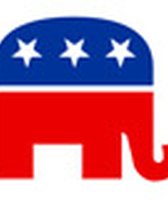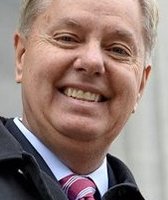Stand up for the facts!
Our only agenda is to publish the truth so you can be an informed participant in democracy.
We need your help.
I would like to contribute
Stewart claims that the stimulus bill is one-third tax cuts
Fox News host Bill O'Reilly and Daily Show host Jon Stewart traded wisecracks -- and a few insults -- in O'Reilly's No Spin Zone on Feb. 3, 2010.
O'Reilly told Stewart that it was frightening that the Daily Show host had been called "an important cultural arbiter." O'Reilly said that his audience is "primarily stoner slackers who love Obama," but that "a lot of people don't think you're smart."
Stewart shot back that O'Reilly was now the "voice of sanity" at Fox, which he likened to "being the thinnest kid at fat camp."
At times, they got serious. One topic was Stewart's belief that Republicans seem intent on opposing everything President Barack Obama puts on the table -- even if he presents an opportunity to compromise.
"But the president won't give the GOP anything," O'Reilly said.
Stewart pointed to Obama's stimulus plan as an example. The bill was opposed by Republicans even though it included tax cuts, which typically appeal to their small government sensibilities.
"[Obama] has given [Republicans] many different angles," Stewart said. "For instance, even in the stimulus plan, a full third of that was tax cuts. ... Just like at the State of the Union when he said we cut taxes for 95 percent of middle-class Americans, and everybody clapped, and the Republicans just sat there like this. Tax cuts, that sounds vaguely familiar."
Is Stewart right that tax cuts account for a third of the stimulus plan?
The stimulus bill, formally known as the American Recovery and Reinvestment Act, is meant to create jobs and boost the economy. It cost $787 billion, including $499 billion to fund new roads, hire teachers and generally keep people employed, and about $288 billion in tax breaks to individuals and businesses. Among other things, the mix of tax cuts includes a refundable credit of up to $400 per individual and $800 for married couples; a temporary increase of the earned income tax credit for disadvantaged families; and an extension of a program that allows businesses to recover the costs of capital expenditures faster than usual.
Simple math shows that Stewart is in the ballpark with his claim: $288 billion is a little more than 36 percent of the bill's overall cost. So, tax cuts -- at least the way they've been defined by the Obama administration -- make up for slightly more than one-third of the bill.
But calculating the cost of the true tax cuts in the stimulus is a bit more complicated. In July 2009, we checked Obama's claim that, at the time, the stimulus had delivered $43 billion in tax breaks. According to the Treasury Department, about $8 billion of that figure came from extending a fix to the Alternative Minimum Tax. Originally, the AMT was targeted at very wealthy people, but over the years it spread to include some middle-income taxpayers as well. Congress passes yearly fixes to prevent those middle income taxpayers from having to pay the AMT.
All told, the AMT fix in the stimulus will cost about $70 billion over 10 years, according to a bill summary published by the Senate Finance Committee. But many tax experts say the AMT fix should not be considered a tax cut. They say that, by extending the AMT fix every year, the government is basically maintaining the status quo.
Back in July, we spoke with a number of tax experts about the issue who all agreed that including the fix as part of the stimulus "tax cuts" is a stretch.
Dan Mitchell, a senior fellow at the free-market Cato Institute, explained it this way:
"AMT is something those people never expect to pay," he said. "It's kind of like saying that, if I didn't rob you on the way home from work today, I gave you money."
The Tax Policy Center, a joint venture between the Urban Institute and the Brookings Institution, gave the AMT extension a D-minus in its Tax Stimulus Report Card because "the provision would provide virtually no economic stimulus. Because the patch is perennially extended, it would have no effect on behavior in 2009. Almost 80 percent of the benefits would go to the richest 20 percent of households, who would be least likely to spend the additional funds and stimulate demand."
So, our tax experts are skeptical that the $70 billion AMT fix should be included in the stimulus bill's tax relief. That would bring down the cost of the tax cuts to about $218 billion. That means about 28 percent of the bill could be described as tax cuts, a little less than the one-third cited by Stewart.
So we find Stewart's claim to be Mostly True.
Our Sources
Fox News, transcript from Feb. 3, 2010 episode of the The O'Reilly Factor, accessed Feb. 10, 2010
PolitiFact.com, Obama overstates tax relief to individuals and businesses, by Catharine Richert, July 22, 2009
Thomas, The American Recovery and Reinvestment Act of 2009 , accessed Feb. 10, 2010
Recovery.gov, about the American Recovery and Reinvestment Act of 2009, accessed Feb. 10, 2010
Senate Finance Committee, summary of stimulus bill tax provisions , accessed Feb. 10, 2010
Joint Committee on Taxation, Estimated Budget Effects of the Revenue Provisions Contained in the Conference Agreement for H.R. 1 , accessed Feb. 10, 2010
Tax Policy Center, stimulus bill report card , accessed Feb, 10, 2010
Interview with Dan Mitchell, the Cato Institute, July 20, 2009
Browse the Truth-O-Meter
More by Catharine Richert
Stewart claims that the stimulus bill is one-third tax cuts
Support independent fact-checking.
Become a member!
In a world of wild talk and fake news, help us stand up for the facts.





























































